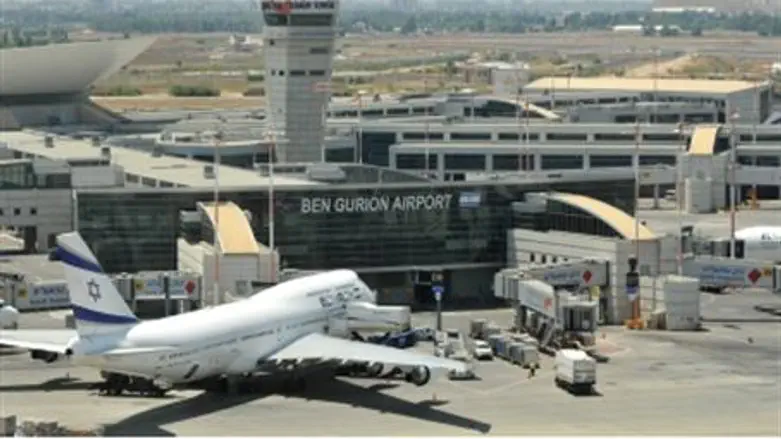
Overall, Israel's recent 50-day war with Gazan terrorists had a remarkably minor effect on the country's economy. However, one sector which was relatively hard-hit was tourism, with many vacationers canceling their trips at peak time over the summer.
Prior to the outbreak of hostilities, last summer was predicted to continue record-breaking trends set in February, as well as 2013 overall.
Yet despite many rabbis and community figures urging Jews in the Diaspora to show solidarity by not canceling their trips, the July-August period saw a drop of 31% in visitor entries compared with the same period last year as a result of hostilities.
But things are showing signs of improvement; September saw just a 20% decrease in visitor entries (15% decrease in tourism visas specifically), with some 205,000 people arriving during that period, 179,000 of whom were counted as "tourists" (staying one night or more). Overall, the period from July-September registered a 27% decrease - 600,000, compared to 832,000 in 2013.
It still makes for grim reading - the numbers are the lowest since 2008 - but is understandable given that the ceasefire agreement between Israel and Gazan terrorists was only signed at the end of August, and many bookings would likely have been canceled for September beforehand in anticipation that the conflict could drag on further.
Tourism Ministry Director-General Amir Halevy noted that the tourism industry is usually the last to recover from a war, and Operation Protective Edge was no exception.
"While the numbers show a slight recovery - and that is encouraging - we are receiving reports of cancellation for the coming months, and we know that tourism is the last to recover. We are working via our offices overseas to get the bookings back again," he said.
Breaking down the figures, the Central Bureau of Statistics revealed some more interesting stats.
Although the number of entries via air were down by 17% in September (some 158,000 visitors), border crossing entrances actually went up by 4.5% (at 21,000) on the previous year - perhaps an indication of lingering concerns over flying specifically in the aftermath of rocket attacks by terrorist groups. No rockets actually reached Ben Gurion Airport during the war, but repeated threats to target the international airport are believed to have contributed towards cancellations during the war itself.
The worst-hit medium of travel was cruise ships - with just 600 people arriving in September, representing a 97% decrease from the September 2013. However, the tourism ministry noted that cruise ship visits were already on the decline even prior to Operation Protective Edge.
Day visits were also particularly hard-hit, registering a 40% decrease (26,000 visitors).
The good news
Yet despite the bad news, officials are confident the "blip" in tourism figures will prove to be temporary. Indeed, despite an exceptionally poor showing during the July-August period, the period of January-September still registered a 5% increase (2.2 million) in tourist visits (despite a 4% decrease in visits overall).
Tourism Minister Dr. Uzi Landau had another piece of good news.
"This week we registered an important achievement - the increase of flights from Moscow to Ovdah airport near Eilat. This is the first signs of a recovery for tourism in the days after Operation Protective Edge," he declared.
"The hard work of tourism ministry employees and industry representatives, day in day out, combined with the 'Precisely Now' marketing campaign and the approval of a half a billion shekel aid package all helps to stabilize the industry in these challenging times ."
